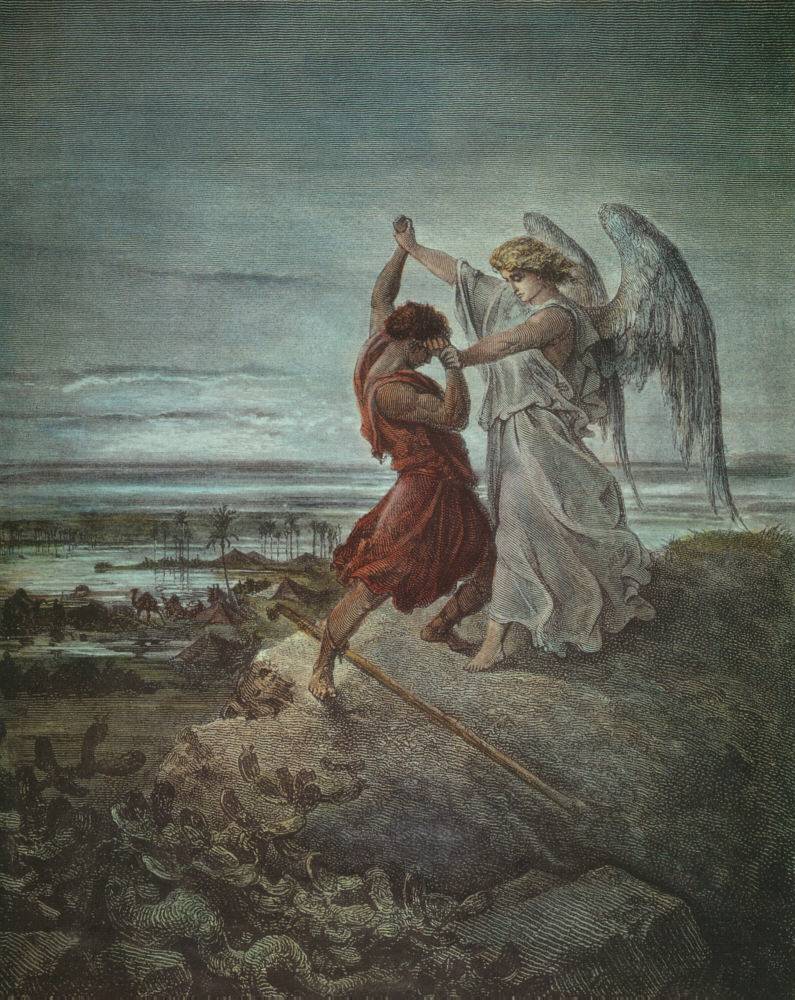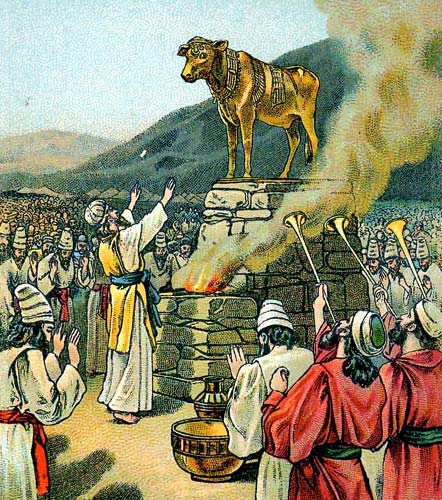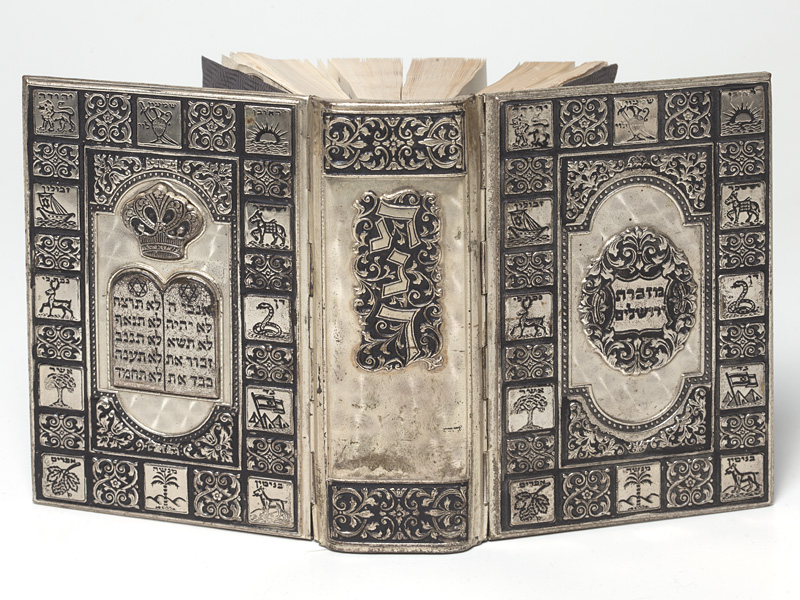|
Bethel (god)
Bethel, meaning 'House of El' or 'House of God' in Hebrew, Phoenician and Aramaic, was the name of a god or an aspect of a god in some ancient Middle Eastern texts dating to the Assyrian, Achaemenid, and Hellenistic periods. The term appears in the Torah and the Christian Bible, but opinions differ as to whether those references are to a god or to a place. Historical records A 1977 book by Javier Teixidor cited some early references that support viewing Bethel as a god of Aramaean or Syrian origin. The author maintains that the origin of the god's cult is unknown, but provides what he believes to be some of the earliest references to the god: * Theophoric names in the seventh century BC, * the 677 BC Esarhaddon's Treaty with Ba'al of Tyre, which associates Bethel with what is apparently another god, Anat-Bethel, in a curse upon the Tyrians if they break the treaty: "May Bethel and Anat-Bethel deliver you to a man-eating lion"; and * an Aramaic tablet from Aleppo dating to 570 B ... [...More Info...] [...Related Items...] OR: [Wikipedia] [Google] [Baidu] |
El (deity)
El is a Northwest Semitic word meaning 'god' or 'deity', or referring (as a proper name) to any one of multiple major ancient Near Eastern deities. A rarer form, ''ila'', represents the predicate form in the Old Akkadian and Amorite languages. The word is derived from the Proto-Semitic *ʔil-. Originally a Canaanite deity known as ''El'', ''Al'' or ''Il'' the supreme god of the ancient Canaanite religion and the supreme god of East Semitic speakers in Early Dynastic Period of Mesopotamia. Among the Hittites, El was known as Elkunirša ( ). Although El gained different appearances and meanings in different languages over time, it continues to exist as ''El-'', ''-il'' or ''-el'' in compound proper noun phrases such as Elizabeth, Ishmael, Israel, Samuel, Daniel, Michael, Gabriel (Arabic: Jibra'il), and Bethel. Linguistic forms and meanings Cognate forms of El are found throughout the Semitic languages. They include Ugaritic , pl. ; Phoenician pl. ; Hebrew , pl. ... [...More Info...] [...Related Items...] OR: [Wikipedia] [Google] [Baidu] |
Yahweh
Yahweh was an Ancient Semitic religion, ancient Semitic deity of Weather god, weather and List of war deities, war in the History of the ancient Levant, ancient Levant, the national god of the kingdoms of Kingdom of Judah, Judah and Kingdom of Israel (Samaria), Israel, and the king of the gods, head of the Pantheon (religion), pantheon of the Polytheism, polytheistic Yahwism, Israelite religion. Although there is no clear consensus regarding the geographical origins of the deity, scholars generally hold that Yahweh was associated with Mount Seir, Seir, Edom, Desert of Paran, Paran, and Teman (Edom), Teman, and later with Canaan. The worship of the deity reaches back to at least the early Iron Age, and likely to the late Bronze Age, if not somewhat earlier. In the oldest Bible, biblical texts, Yahweh possesses attributes that were typically ascribed to deities of weather and war, fructifying the Land of Israel and leading a Heavenly host#Hebrew Bible, heavenly army against the ... [...More Info...] [...Related Items...] OR: [Wikipedia] [Google] [Baidu] |
Vayishlach
Vayishlach (—Hebrew language, Hebrew for "and he sent," the incipit, first word of the parashah) is the eighth weekly Torah portion (, ) in the annual Judaism, Jewish cycle of Torah reading. In the parashah, Jacob reconciles with Esau after wrestling with a "man." The prince Shechem (biblical figure), Shechem rapes Dinah, whose brothers sack the city of Shechem in revenge. In the family's subsequent flight, Rachel gives birth to Benjamin and dies in childbirth. The parashah constitutes Book of Genesis, Genesis 32:4–36:43. The parashah has the most Chapters and verses of the Bible, verses of any weekly Torah portion in the Book of Genesis (Parashat Miketz has the most letters, Parashat Vayeira has the most words, and Parashat Noach (parsha), Noach has an equal number of verses as Parashat Vayishlach). It is made up of 7,458 Hebrew letters, 1,976 Hebrew words, 153 verses, and 237 lines in a Torah scroll (''Sefer Torah''). Jews read it the eighth Shabbat after Simchat Torah, in N ... [...More Info...] [...Related Items...] OR: [Wikipedia] [Google] [Baidu] |
Book Of Genesis
The Book of Genesis (from Greek language, Greek ; ; ) is the first book of the Hebrew Bible and the Christian Old Testament. Its Hebrew name is the same as its incipit, first word, (In the beginning (phrase), 'In the beginning'). Genesis purports to be an account of the Genesis creation narrative, creation of the world, the early history of humanity, and the Jews#Origins, origins of the Jewish people. In Judaism, the theological importance of Genesis centers on the covenants linking God in Judaism, God to his chosen people and the people to the Promised Land. Genesis is part of the Torah or Pentateuch, the first five books of the Bible. Tradition credits Moses as the Torah's author. However, there is scholarly consensus that the Book of Genesis was composed several centuries later, after the Babylonian captivity, Babylonian Babylonian captivity, captivity, possibly in the fifth century BC. Based on the scientific interpretation of Archaeology, archaeological, Genetics, genetic, ... [...More Info...] [...Related Items...] OR: [Wikipedia] [Google] [Baidu] |
Golden Calf
According to the Torah, the Bible, and the Quran, the golden calf () was a cult image made by the Israelites when Moses went up to Mount Sinai (bible), Mount Sinai. In Hebrew, the incident is known as "the sin of the calf" (). It is first mentioned in the Book of Exodus. Sacred bull, Bull worship was common in many cultures. In Ancient Egypt, Egypt, whence according to the Exodus narrative, the Israelites had recently come, the bull-god Apis (deity), Apis was a comparable object of worship, which some believe the Hebrews were reviving in the wilderness. Alternatively, some believe Yahweh, the national god of the Israelites, was associated with or pictured as a sacred bull through the process of religious assimilation and syncretism. Among the Canaan, Canaanites, some of whom would become the Israelites, the bull was widely worshipped as the sacred bull and the creature of El (deity), El. Biblical narrative When Moses went up Mount Sinai (Bible), Mount Sinai to receive the Ten C ... [...More Info...] [...Related Items...] OR: [Wikipedia] [Google] [Baidu] |
Jeroboam
Jeroboam I (; Hebrew language, Hebrew: ''Yārŏḇʿām''; ), frequently cited Jeroboam son of Nebat, was, according to the Hebrew Bible, the first king of the northern Kingdom of Israel (Samaria), Kingdom of Israel following a Jeroboam's Revolt, revolt of the Ten Lost Tribes, ten tribes against Rehoboam that put an end to the United Monarchy. According to the book of 1 Kings, he reigned for 22 years and "there was war continually between Rehoboam and Jeroboam". Jeroboam also fought Abijam son of Rehoboam king of Judah. Jeroboam is often described as "doing evil in the sight of the Lord" William F. Albright has dated his reign from 922 to 901 BC, while Edwin R. Thiele offers the dates 931 to 910 BC. There has been much academic discussion in recent years on whether Jeroboam I existed and whether he may be a retrojection of Jeroboam II, though there is not a consensus on the topic. Etymology The name ''Yārŏḇ‘ām'' is commonly held to have been derived from ''rīḇ'' an ... [...More Info...] [...Related Items...] OR: [Wikipedia] [Google] [Baidu] |
Kamōš
Chemosh (; ) is a Canaanite deity worshipped by Ancient Semitic-speaking peoples who occupied the region known as Moab, in modern-day Jordan east of the Dead Sea, during the Levantine Bronze and Iron Ages. Chemosh was the supreme deity of the Canaanite state of Moab and the patron-god of its population, the Moabites, who in consequence were called the "People of Chemosh". The name and significance of Chemosh are historically attested in the Moabite-language inscriptions on the Mesha Stele, dated ca. 840 BCE. Chemosh is also mentioned in the Hebrew Bible. Name The name of Chemosh is attested in the Moabite language as (), which was pronounced as (). The name of Chemosh is of yet uncertain origin, and it is unclear whether it was related to the name of the Eblaite deity (), or the Ugaritic divine name (), or an epithet of the Mesopotamian god Nergal which might have meant "bull", (). According to one hypothesis which assumes that the names and , and and were the ... [...More Info...] [...Related Items...] OR: [Wikipedia] [Google] [Baidu] |
Moab
Moab () was an ancient Levant, Levantine kingdom whose territory is today located in southern Jordan. The land is mountainous and lies alongside much of the eastern shore of the Dead Sea. The existence of the Kingdom of Moab is attested to by numerous archaeological findings, most notably the Mesha Stele, which describes the Moabite victory over an unnamed son of Kings of Israel and Judah, King Omri of Kingdom of Israel (Samaria), Israel, an episode also noted in Books of Kings, 2 Kings 3. The Moabite capital was Dibon. According to the Hebrew Bible, Moab was often in conflict with its Israelites, Israelite neighbours to the west. Etymology The etymology of the word Moab is uncertain. The earliest Biblical gloss, gloss is found in the Koine Greek Septuagint () which explains the name, in obvious allusion to the account of Moab's parentage, as ἐκ τοῦ πατρός μου ("from my father"). Other etymologies which have been proposed regard it as a corruption of "seed of a ... [...More Info...] [...Related Items...] OR: [Wikipedia] [Google] [Baidu] |
Bethel
Bethel (, "House of El" or "House of God",Bleeker and Widegren, 1988, p. 257. also transliterated ''Beth El'', ''Beth-El'', ''Beit El''; ; ) was an ancient Israelite city and sacred space that is frequently mentioned in the Hebrew Bible. Bethel is first referred to in the Bible as being near the place where Abram pitched his tent. Later, Bethel is mentioned as the location of Jacob's Ladder that Jacob named Bethel "House of God". The name is further used for a border city located between the territory of the tribe of Benjamin and that of the tribe of Ephraim, which first belonged to the Benjaminites and was later conquered by the Ephraimites. In the 4th century, Eusebius and Jerome described Bethel as a small village that lay 12 Roman miles north of Jerusalem to the right or the east of the road leading to Neapolis.Robinson and Smith, 1856, pp. 449–450. Most scholars identify Bethel with the modern-day village of Beitin, located in the West Bank, northeast of Ramallah. ... [...More Info...] [...Related Items...] OR: [Wikipedia] [Google] [Baidu] |
Book Of Jeremiah
The Book of Jeremiah () is the second of the Latter Prophets in the Hebrew Bible, and the second of the Prophets in the Christian Old Testament. The superscription at chapter Jeremiah 1#Superscription, Jeremiah 1:1–3 identifies the book as "the words of Jeremiah son of Hilkiah". Of all the prophets, Jeremiah comes through most clearly as a person, ruminating to his scribe Baruch ben Neriah, Baruch about his role as a servant of God with little good news for his audience. His book is intended as a message to the Jews in exile in Babylon, explaining the disaster of exile as God's response to Israel's pagan worship: the people, says Jeremiah, are like an unfaithful wife and rebellious children, their infidelity and rebelliousness made judgment inevitable, although restoration and a new covenant are foreshadowed. Authentic oracles of Jeremiah are probably to be found in the poetic sections of Jeremiah 1, chapters 1 through Jeremiah 25, 25, but the book as a whole has been heavily ... [...More Info...] [...Related Items...] OR: [Wikipedia] [Google] [Baidu] |
Old Testament
The Old Testament (OT) is the first division of the Christian biblical canon, which is based primarily upon the 24 books of the Hebrew Bible, or Tanakh, a collection of ancient religious Hebrew and occasionally Aramaic writings by the Israelites. The second division of Christian Bibles is the New Testament, written in Koine Greek. The Old Testament consists of many distinct books by various authors produced over a period of centuries. Christians traditionally divide the Old Testament into four sections: the first five books or Pentateuch (which corresponds to the Jewish Torah); the history books telling the history of the Israelites, from their conquest of Canaan to their defeat and exile in Babylon; the poetic and wisdom literature, which explore themes of human experience, morality, and divine justice; and the books of the biblical prophets, warning of the consequences of turning away from God. The Old Testament canon differs among Christian denominations. The Ea ... [...More Info...] [...Related Items...] OR: [Wikipedia] [Google] [Baidu] |
Hebrew Bible
The Hebrew Bible or Tanakh (;"Tanach" . '' Random House Webster's Unabridged Dictionary''. ; ; or ), also known in Hebrew as (; ), is the canonical collection of scriptures, comprising the Torah (the five Books of Moses), the Nevi'im (the Books of the Prophets), and the [...More Info...] [...Related Items...] OR: [Wikipedia] [Google] [Baidu] |









